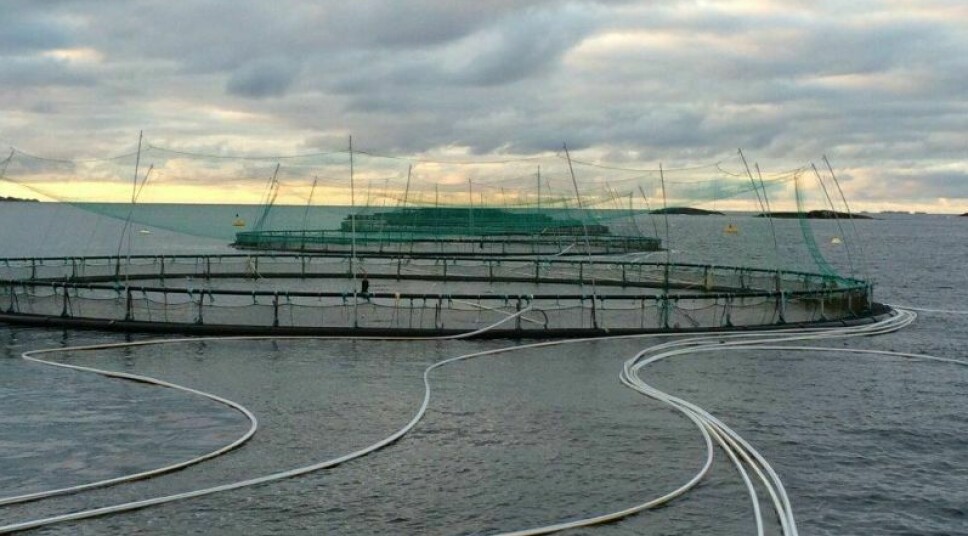Quarterly results

NRS lost heavily on contracts
A significant part of the Norwegian salmon farmer's sales in the second quarter were on contracts far lower than the spot price. This resulted in an EBIT per kg for Norway that was almost NOK 40 lower than what it would have been if everything had been sold at the spot price.
Norway Royal Salmon (NRS) made an operational EBIT before depreciation of offshore equipment of NOK 32 million and an EBIT per kg at NOK 16.26, in the second quarter of this year. Corresponding figures from the same quarter last year are NOK 94 m and NOK 11.74.

"It has been a quarter with salmon prices at record levels. NRS has slaughtered a low volume and, as announced in the previous quarterly presentation, we therefore have an unusually high share of the Norwegian volume on fixed price contracts. The price achieved in relation to the spot price has therefore been low and this significantly affects the result in this quarter," said chief executive Charles Høstlund.
NRS reports that it has a good financial position with NOK 1.94 billion in unused credit lines, as well as NOK 80 m in bank deposits at the end of the second quarter.
"A positive EBITDA and reduced working capital explain that net interest-bearing debt was reduced in the second quarter by NOK 91 m to NOK 2.153 bn. Equity at the end of the quarter is 4,.57 bn, which gives an equity share of 53%."
Farming in Norway
Farming Norway achieved an operational EBIT in the second quarter of 2022 of 34.8 m compared to 96.3 m in the corresponding quarter of the previous year.
Operational EBIT per kg gutted weight was NOK 48.16 against NOK 12.49 in the corresponding quarter last year.
The contract share reduced EBIT per kg by NOK 38.06.
The quality of the fish due to winter sores also had a negative impact on the price achievement, while the time of harvest in the quarter contributed positively, NRS said in its Q2 2022 presentation.
Farming Norway harvested a volume of 3,442 gutted weight tonnes in the quarter, which is 56% lower than the corresponding quarter last year.
Sold volume from sales activities in the quarter is 15,405 tonnes of salmon, which is 18% lower than the corresponding quarter last year.
Farming in Iceland
Farming Island achieved an operational EBIT in the second quarter of 2022 of NOK 37.9 million compared to NOK 17.6 in the corresponding quarter the previous year.
Operational EBIT per kg gutted weight was NOK 36.84 against NOK 9.66 in the corresponding quarter last year.
Farming Iceland slaughtered a volume of 1,029 gwt in the quarter, which is 44% higher than the corresponding quarter last year.
Merger with SalMar
Giving an update on plans for a merger with salmon farming giant SalMar, Høstlund said the plan had now been approved in general meetings at both companies.
"These are companies that have clear complementary activities in Norway, Iceland and through offshore aquaculture. There is therefore a solid industrial rationale for the merger and a significant synergy potential," said the chief executive.
"Through self-produced smolt from the new smolt plant and the phasing out of sterile (triploid) fish, NRS expects to gradually deliver a more competitive production cost and fewer biological challenges going forward. The foundation is therefore in place and the merger provides an even stronger basis for value creation and employment in the areas where NRS operates."











